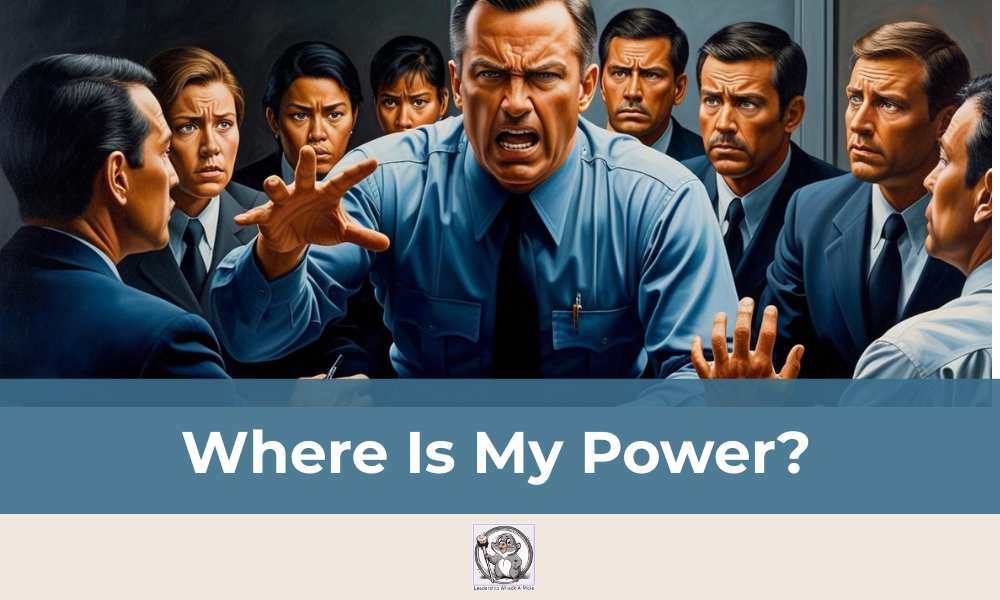
Where is My Power?
By Ric Shriver
“Nearly all men can stand adversity, but if you want to test a man’s character, give him power.”
Abraham Lincoln
Most of us in our current or prospective leadership roles ponder how we will utilize the various forms of power that we now, or will in the future, possess. Most of us have experienced the various demonstrations of power, both positive and negative, by leaders we have been exposed to or subject to during our careers. Based on our own personal values, beliefs, and perceptions about the appropriate uses of power, we have formed our own opinions about what is effective and what is ineffective. What I trust you, as the leader completing this year-long journey of observation, consideration, and application, have discovered is that every organization, every team, and every individual whom you lead presents unique challenges that call on us to tap into the various forms of power to inspire the best results for all stakeholders of the organization.
In my recent book Fears of A Leader, I address the inappropriate demonstration of power by narcissistic, self-centered leaders – leaders who seek self-adulation and gratification versus what is good for their organizations and teams. What I have witnessed in a few of my career roles, are leaders with obsessive compulsive disorders and narcissistic tendencies being extremely vocal, abrasive, and dismissive of the team members’ boundaries. These individuals, particularly those in leadership roles, will consistently expect to be the center of attention through their raised voices, abrasive and loud mannerisms, and their obsessive need for recognition and adoration. These individuals often engage in physical and verbal interactions with members of their teams that could constitute a hostile work environment.
John French and Bertram Raven’s 1959 research on the “Social Bases for Power” conveyed that there are five formal sources of social power:
- Formal/Authoritative/Legitimate Power – Power derived from the position and authority we are endowed with in our respective organizations and assigned roles.
- Reward Power – Power derived from our access to and ability to provide both intrinsic and extrinsic rewards to the people we are trying to influence or control.
- Coercive Power – Power derived from our access to and ability to provide punishment or consequences for undesirable performance or outcomes.
- Expert Power – Power derived from our technical knowledge of the functions, challenges, or performance issues we are trying to impact.
- Referent Power – Power derived from our personal and behavioral attributes displayed in our interactions with others.
I add another source of power to French and Raven’s model that has become instrumental for most leaders to possess – Informational Power. We reference the importance of the appropriate use of Information in both the chapters focused on Change and Communication in Leadership Whack-A-Mole: Actionable Strategies for Leadership Challenges. So, given that we may have these six (6) general sources of power to tap into as we exercise direction, alignment, and overall execution of our assigned priorities, which source is best for us to use?
CHALLENGE QUESTIONS FOR LEADERS:
- In your leadership role, what do you feel is your best source of power to tap into? Why do you feel that this is best for your team? Your organization?
- Under what circumstances do you feel it is important to rely primarily on your authoritative power, power granted to you by your business and organizational structure?
- Under what circumstances do you feel that it is important for you to rely primarily on your power of expertise, the technical or clinical knowledge you possess in your field of discipline?
- Under what circumstances do you feel that it is important for you to rely primarily on the power of internal relationships within or outside of your organization, seeking their reinforcement and/or expertise to address the challenges at hand?
- What sources of power have been positively and constructively impactful for you and your career? Who demonstrated that form of power? What characteristics were observed and remembered by you and others similarly impacted?




